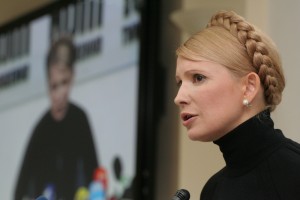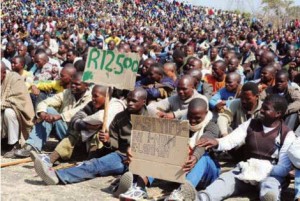Talks between Tehran and Moscow, Obama’s State of the Union, and elections in Ecuador make for another busy international week
Further pre-trial hearings in the case of alleged 9/11 mastermind Khalid Sheikh Mohammed and his four co-defendants resume on Monday and continue all week at Guantanamo Bay in Cuba. At the last session, held at the end of January, it emerged that proceedings were being censored by figures outside the courtroom. The judge overseeing proceedings, Colonel James Pohl, subsequently ordered the release of the transcript of the censored section of proceedings.
Finally, Egypt marks the second anniversary of Hosni Mubarak stepping down as President following unprecedented protests in the Arab world’s most populous state. Two years on, the turmoil in Egypt continues with little prospect of an end in sight.
Tuesday 12 February
On Tuesday, all eyes will turn to the United States, when President Barack Obama delivers his State of the Union address. Of note too is the fact that this year the Republican response will be delivered by Florida Senator Marco Rubio, described on a recent Time magazine cover as the ‘saviour’ of the GOP.
Also in the US, UN High Commissioner for Human Rights Navi Pillay will address a Security Council meeting on the protection of civilians in armed conflict, where she is likely to highlight the plight of Syrians.

Finally, France’s National Assembly is due to begin consideration of a banking reform bill, which would increase oversight of banks and aims to curb risky trading activities. Critics argue the proposed reforms concede too much to banks and fall short of lofty campaign rhetoric about getting tough on banks.
Wednesday 13 February
On Wednesday, it is EU High Representative Catherine Ashton’s turn to address the UN Security Council at a session discussing cooperation with the EU. She may well discuss the upcoming talks on Iran’s nuclear programme, now scheduled for 26 February in frosty Almaty, Kazakhstan.
In Moscow, meanwhile, the head of the state-run arms exporter Rosoboronexport, Anatoly Isaykinis, is scheduled to hold a press briefing at Russia’s Foreign Ministry. He may face questions on Russian arms sales to Syria.
Finally, Turkey’s European Affairs Minister Egemen Bagis will be in London addressing a RUSI/Open Europe discussion.
Thursday 14 February

Also on Thursday, a slew of interesting economic data is scheduled to be released. Highlights include fourth quarter GDP data for Germany, Japan, Italy and Greece, as well as a flash estimate for the whole EU area.
Friday 15 February
On Friday, Russia will host G20 finance ministers and central bankers for a meeting in Moscow, attended by IMF Managing Director Christine Lagarde.
In the US, President Barack Obama will hold talks with Italian President Giorgio Napolitano, where they are likely to discuss the upcoming Italian elections, scheduled for 24-5 February. At the moment, it seems likely Italy’s next premier will be Pier Luigi Bersani, of the centre-left Partido Democratico.
Saturday 16 and Sunday 17 February

Voting also takes place in Cyprus, where eleven candidates are seeking to replace President Demetris Christofias. If no clear winner emerges, a run-off will take place on 24 February. Cyprus is seeking a bailout from the EU and IMF, however this is highly unlikely to be finalised until after the elections.
Lastly, environmentalists are scheduled to hold a major rally in Washington DC. Particularly focused on opposition to the proposed Keystone XL pipeline which would transport Canadian oil, including oil gleaned from controversial tar sands, into the US.
Some pictures courtesy of Telekhovskyi / Pablo Hidalgo / Shutterstock.com
